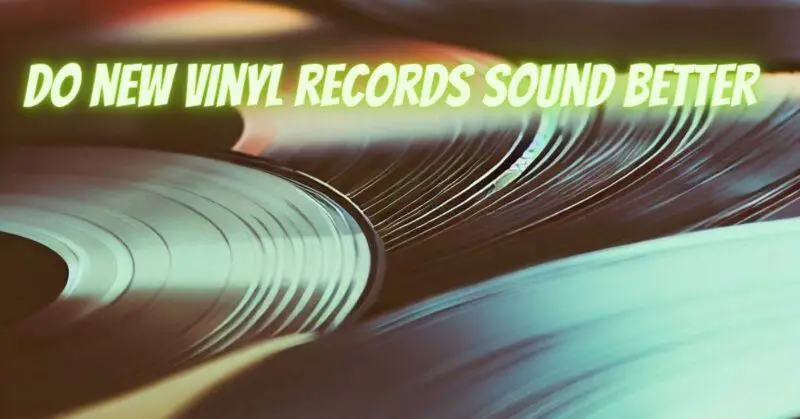Vinyl records have experienced a resurgence in popularity over the past decade, with many music enthusiasts embracing the format for its warm and nostalgic sound. As vinyl production continues to grow, some audiophiles wonder whether the audio quality of newly produced vinyl records surpasses that of older ones. In this article, we will explore the factors influencing vinyl record quality and whether modern production techniques have improved the audio fidelity of vinyl records.
The Vinyl Record Manufacturing Process
Before delving into the comparison between older and newly produced vinyl records, it is essential to understand the vinyl record manufacturing process. Vinyl records are created by cutting grooves into a master lacquer using a lathe. The master lacquer is then used to create a metal stamper, which is used to press vinyl records from raw vinyl pellets. The sound quality of the final vinyl record depends on various factors throughout this manufacturing process.
Factors Influencing Vinyl Record Quality
- Mastering: The quality of the master lacquer is critical in preserving the audio fidelity of the recording. Skillful mastering engineers can ensure that the grooves accurately represent the original audio signal.
- Vinyl Material: The quality of the vinyl material used in record pressing can impact the sound quality. High-quality vinyl with low surface noise is desirable for optimal audio reproduction.
- Pressing Plant: The pressing plant’s expertise and adherence to quality control standards influence the consistency and overall quality of the vinyl records.
- Quality Control: Effective quality control measures during the manufacturing process are essential to identify and eliminate defects that could affect sound quality.
Newly Produced Vinyl Records
Advancements in technology and manufacturing processes have led to improvements in newly produced vinyl records. Many pressing plants now use modern techniques and equipment to achieve better precision and audio fidelity. Additionally, audiophiles can find reissues of classic albums made from the original master tapes, resulting in higher-quality reproductions compared to older pressings.
Moreover, some newly produced vinyl records are pressed on audiophile-grade vinyl, often thicker and with higher purity, resulting in improved sound characteristics and durability.
Older Vinyl Records
While older vinyl records can hold sentimental value and offer a unique listening experience, their sound quality can vary. Vinyl records pressed during the heyday of the format (e.g., the 1960s and 1970s) often used different manufacturing processes, and some pressings may exhibit issues like surface noise, groove wear, or pressing defects.
However, it is essential to note that older vinyl records are not inherently inferior in sound quality. Well-preserved and cared-for vintage records can still provide excellent sound reproduction, especially if sourced from the original master tapes or well-executed mastering processes.
The audio quality of newly produced vinyl records can indeed surpass that of older ones, thanks to advancements in manufacturing techniques, use of high-quality materials, and access to original master tapes for reissues. Modern audiophile-grade pressings offer improved sound characteristics and durability, making them desirable for music enthusiasts seeking the best possible vinyl sound.
However, it is essential to recognize that older vinyl records can still provide an enjoyable listening experience, especially when in good condition and sourced from high-quality master tapes. Ultimately, the enjoyment of vinyl records is subjective, and both old and new pressings can offer a unique and nostalgic way to experience music.


